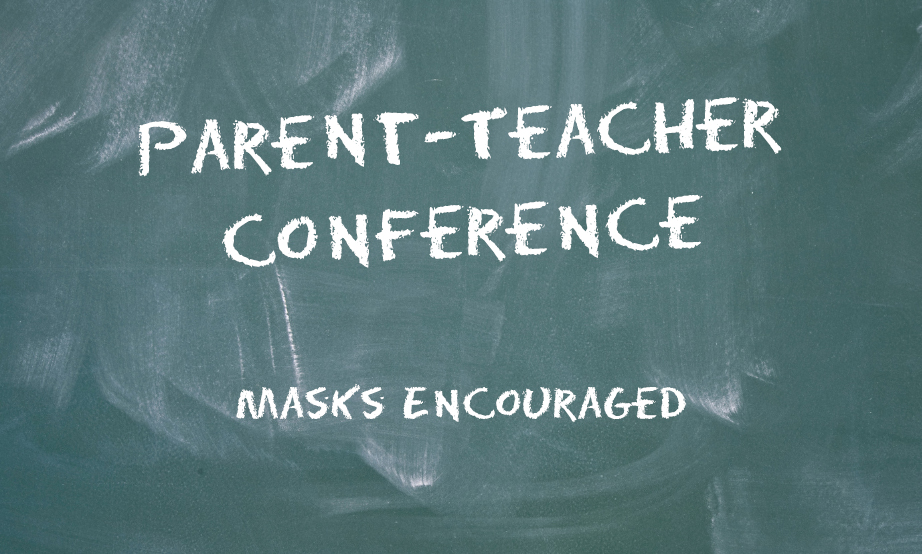
First Parent-Teacher Conference at a New School
by Stacy Allsbrook-Huisman
Parent-teacher conferences are essential checkpoints for military students attending a new school. Parent-teacher conferences are the speed bump during the Seasons of Transition ™, an event in which parents and teachers can align their expectations. This usually takes place six weeks after the start of school. And in the cycle of school transition, a student should be progressing through the Season of Arriving and ready to get to work in the Season of Growing.
The first parent-teacher conference is a good time to intentionally assess the student’s initial class placement, academic work, and social adjustment.
Tips for Approaching the First Conference at a New School
- The first rule of thumb is to listen more and talk less. Or sometimes a parent should sit on their hands when the teacher is explaining a student’s progress. It’s important to let the teacher do their job and for parents to listen to someone who sees the child as their student, not just their child. Children may behave differently at home than in a classroom around other adults and children. It’s a different window, a different view of the student, and it can be an eye-opening experience.
- Bring the student’s Education Binder to the conference. Ideally, if the student is new to the school, the Education Binder should be given to the teacher before the conference. Allow the teacher some time to review it. The binder is one of the tools parents can use to better document their student’s education history. It allows informal continuity between schools and should tell a student’s education story. It’s not just about grades, but an overview of the child’s previous years in school. With most military-connected students, attending six to nine different schools is common. The Education Binder allows educators to have a better understanding of their new students and the unique, but sometimes challenging aspects of the highly mobile lifestyle.
- Bring the student to the conference, if age-appropriate, and come prepared to ask questions or address any concerns they might have. It’s a good idea for students to write their questions down on an index card in advance so nerves can’t derail the inquiries.
- Share the family PCS story with the teacher. During the Parent-Teacher Conference is the right time to explain the challenges or struggles the student faced during the recent move. If parents have concerns with the student’s adjustment, especially the social and emotional aspects of a new school, this is the perfect time to talk about that. Teachers want to help any student who may not be thriving yet. It’s also a good time to address a past or upcoming deployment, living in temporary housing, or additional challenges at home.
Bring your patience … It’s been hard on military-connected students, their parents, and the educators who teach them.
- Bring your patience. The profound effect the pandemic has had on education will be long-lasting. Every school, city, and state has handled the pandemic in education differently. And schools, teachers and families are still not operating at pre-pandemic standards. It’s been hard on military-connected students, their parents, and the educators who teach them. It’s still not a normal year, but teachers are doing their very best under incredibly stressful circumstances. So give grace when the opportunity presents itself.
- A parent-teacher conference is one of many check-ins a parent can have with a teacher to discuss academic or social and emotional progress. A typical conference is usually only 15-20 minutes long, certainly not enough time to dive into a military student’s rich history of multiple moves and challenges, so schedule a follow-up meeting 3-4 weeks after the first parent-teacher conference. This will give the teacher some time to address initial concerns.
Questions to Ask During the First Parent-Teacher Conference
Most military-connected children need to be socially and emotionally connected before their academics can be a priority. Use the first parent-teacher conference to discuss social-emotional concerns. It’s important not to chase curriculum this year, but to focus on the student’s needs first.
- What does lunch look like for the student? Is the student sitting alone or with others?
- What does recess or free time look like for the student?
- Is the student participating in groups?
- Is the student asking questions?
- Ask for assistance in friendship matching. If the student isn’t quite fitting in yet or has voiced concerns about a lack of connecting, ask the teacher for help establishing connections in the classroom.
- Is the student ahead or behind in the school’s curriculum?
- Is the student’s placement in leveled groups or class correct?
- What are the academic expectations? When does standard testing begin?
- What type of support does the teacher or school offer if the student is struggling academically?
- Address any mismatched curriculum, gaps and overlaps.
Parents and teachers who collaborate together and honor each other’s roles create a strong student-advocacy team. The first conference is one important step to ensuring a military-connected student has the support they need to grow and thrive for the rest of the school year.
Stacy Huisman is an Air Force spouse, mother of two, and freelance writer. An advocate with a passion for military-connected children and their families, Stacy is coauthor of Seasons of My Military Student: Practical Ideas for Parents and Teachers. She’s dedicated the last decade to understanding the challenges military kids face when changing schools.
You may also enjoy reading:



